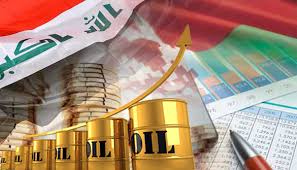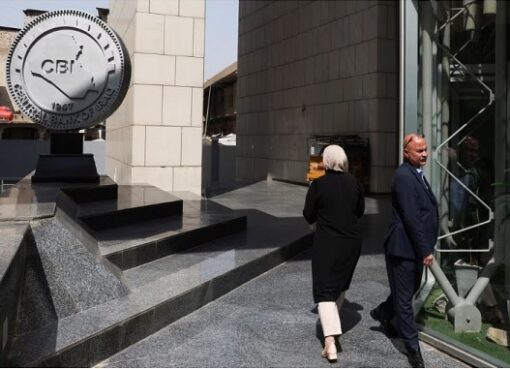Iraq devalued its currency by almost 20% against the dollar, the most on record, as the cash-strapped government faces an economic crisis brought about by low crude prices and oil-production cuts.
The central bank on Saturday reduced the official rate to 1,450 dinar per dollar, the first devaluation since 2003. That’s from about 1,190 previously. Dollars will be resold to local banks at 1,460 dinar apiece.
The devaluation in the world’s third-largest oil exporter threatens to put some goods beyond the means of ordinary Iraqis, and trigger unrest in a country that imports heavily and is still reeling from last year’s deadly anti-government protests.
Finance Minister Ali Allawi said one main reason for the move was to activate the private sector and local production while avoiding a severe budget deficit.
“What has been done is a preemptive step,” Allawi said in a televised interview on the state-run Iraqiya channel. Without the move, he said, inflation will soar and “we will hit the wall.”
Iraq is taking the steps to avoid depleting its foreign-currency reserves after the coronavirus sapped demand for energy and caused prices to decline. Without the devaluation, the reserves would have been drained within six to seven months, and the budget deficit could reach 100 trillion dinars ($84 billion) in 2021, Allawi said.
The International Monetary Fund expects Iraq’s economy to shrink 12% this year, more than that of any other OPEC member under a production quota, and that its budget deficit will reach 22% of gross domestic product. The government last month sought upfront payments in exchange for a long-term crude-supply contract to help mitigate its dire financial situation.
What Bloomberg Economics Says…
“The devaluation was inevitable given the drop in oil prices and the budgetary pressures Iraq is facing. The government says that this is a one-off and won’t be repeated, but we’ll see if that will be the case. It is also important to watch the popular response to the resulting increase in living costs and the government’s austerity program.”
— Ziad Daoud, chief emerging-markets economist
The economic crisis adds pain for a nation that’s been in chaos for most of the period since the U.S.-led invasion of 2003 that toppled Saddam Hussein, suffering civil war, an insurgency by Islamic State and a push by the Kurds for independence in the north, a major oil-producing region.
All major oil producers have taken a hit from the coronavirus-induced plunge in crude prices. But Iraq, where oil accounts for almost all government revenue, is in a worse position than most.
Quotas agreed with other oil exporters in an effort to stabilize the market mean the number of barrels Iraq can pump is restricted. Prime Minister Mustafa Al-Kadhimi, who came to power in May, has warned that authorities will therefore struggle to pay civil servants without raising more debt. That’s threatening a repeat of the upheaval that last year brought down the government and saw hundreds of protesters killed.
Demonstrators at a rally at Tahrir Square at the end of October denounced corrupt politicians, daily power cuts, dilapidated hospitals, crumbling roads and a lack of jobs, and urged the government to ignore OPEC output cuts.
Read original article here.








Comment here